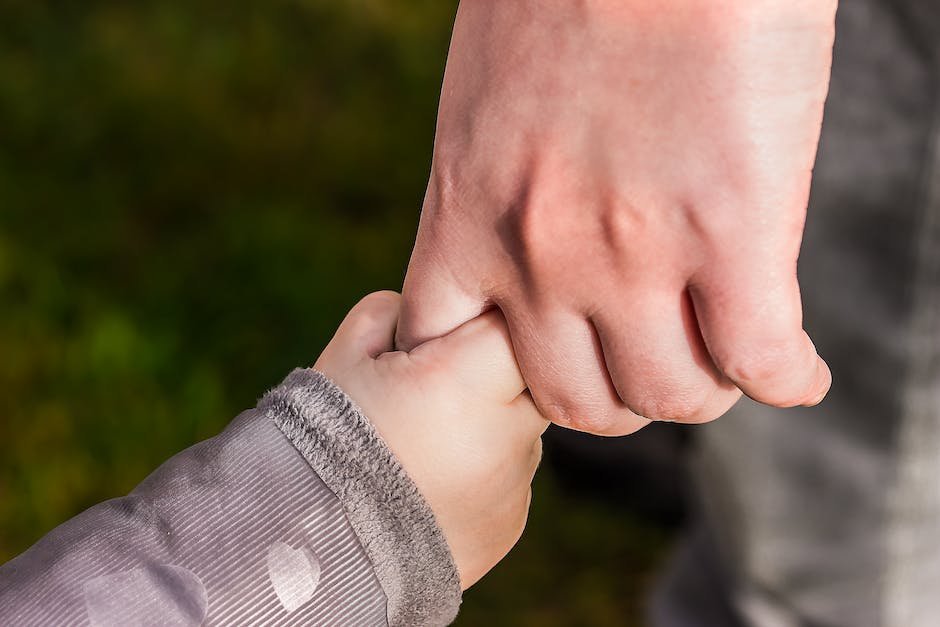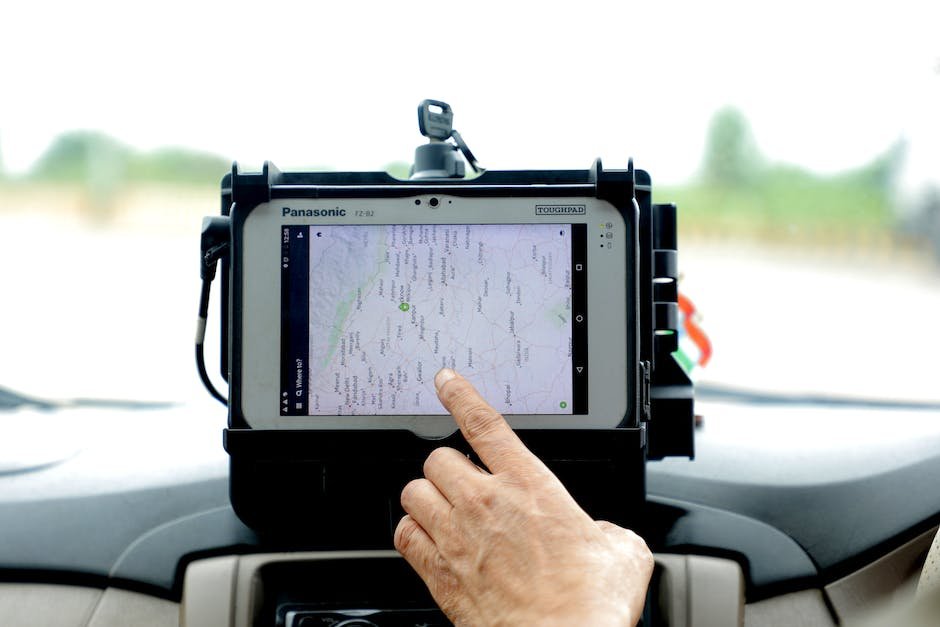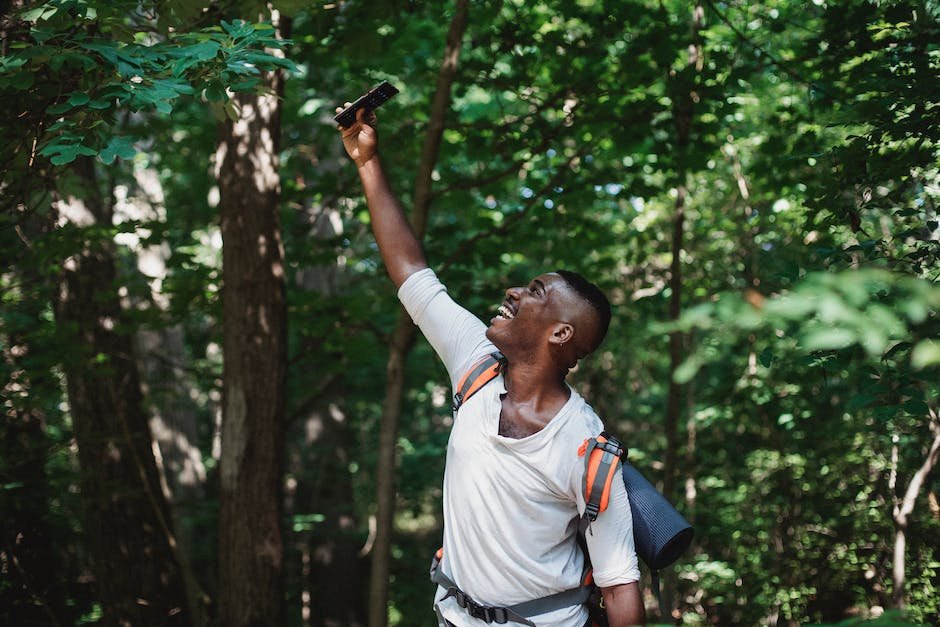Navigating the world can be a complex process, especially for families with autistic children who may face unique challenges in ensuring their loved one’s safety. With wandering being a common concern, GPS tracking technology has emerged as a beacon of hope, offering families an extra layer of security. This essay delves into the intricacies of GPS tracking, addressing the pivotal role it plays in safeguarding children with autism. From unraveling the workings of this innovative technology to selecting the ideal GPS tracker customized to meet children’s individual needs, we explore the balance between safety and independence, and outline strategies for incorporating these devices into everyday life seamlessly. We also look at the broader picture, recognizing the vital support networks and resources that guide families through this journey. Rich with real-life testimonials, this discussion aims to enlighten and inspire, shedding light on how embracing this technology can bring a sense of relief and assurance to concerned parents.
Understanding GPS Tracking Technology
GPS Tracking: A Parenting Game-Changer for Safety and Peace of Mind
In the bustling world of parenting, where the to-do list seems endless and every precious moment with our kids is invaluable, there’s an increasing need for smarter, more efficient ways to keep our little ones safe. Enter GPS tracking, our modern-day guardian angel that’s revising the way parents gain peace of mind.
Previously, the term ‘GPS tracking’ may have conjured images of complicated gadgets and high-tech spy movies, but today, it’s as much a part of parenting as diaper bags and bedtime stories. It’s a simple and effective tool that’s easing the minds of families everywhere.
So, how exactly does GPS tracking provide that much-coveted peace of mind?
- Firstly, there’s the obvious benefit of location tracking. With a GPS-enabled device, like a smartwatch or a phone, parents can pinpoint their child’s location in real time. No more nail-biting moments when a child ventures out to play or heads to school. Whether they’re at a friend’s house or on a class trip, a quick glance at an app provides instant reassurance.
- This technology isn’t just for the day-to-day checks. In the event of an emergency, GPS tracking can be a lifesaver. Imagine a child getting lost in a crowded place – with GPS, the panic is significantly reduced as the exact location can be identified, and parents can react promptly.
- Secondly, the tamper alerts on many of these devices mean that parents are notified if the device is removed. This feature adds an additional layer of security, ensuring that parents are always in the loop.
- Moreover, GPS tracking isn’t just about knowing where children are; it’s also about understanding where they’ve been. Some devices keep a log of locations visited, giving parents insights into their child’s routines and habits. This can spark important conversations about safety, boundaries, and trust.
- Let’s also mention the geofencing feature, beloved by many tech-savvy guardians. Geofencing allows parents to set virtual boundaries—think home, school, or Grandma’s house—and receive alerts when their children enter or leave these defined zones. These alerts can provide reassurance when kids are on the move, without constantly checking the tracking app.
- But it’s not all about surveillance. GPS tracking can foster independence in children too. Kids can venture a little further, explore a bit more, and gain confidence—all under the discreet, watchful eye of parental supervision. As a result, children learn to navigate their environments with an appropriate safety net in place.
- In the current age where information is power, GPS tracking gives parents the right information at the right time, empowering them to protect and provide for their children in the most effective ways possible. While no technology can replace the watchful eyes and loving care of a parent, GPS tracking can certainly be a valuable ally in the quest to raise happy, healthy, and secure children.
Remember, though, technology is an aid, not a replacement for good parenting practices. Open communication, education, and appropriate supervision are paramount. But for those moments when a parent can’t be physically present, GPS tracking stands as a reassuring bridge, keeping the family connected and secure. It’s no wonder that more and more parents are embracing this gentle giant of the tech world with open arms.

Choosing the Right GPS Tracker
Ensuring the safety of our children is a priority that every parent holds dear. In today’s bustling world, a GPS tracker can be an invaluable asset. When choosing the perfect GPS tracker for your precious cargo, certain key features can make all the difference.
Firstly, battery life is an essential consideration. A device is only as good as the time it can operate. Look for trackers with long-lasting batteries that can go for days without needing a recharge. This way, you won’t be left in the lurch trying to locate a child with a dead tracker.
Next, consider the size and design of the GPS tracker. A bulky or uncomfortable tracker is likely to be rejected by kids, who prefer something sleek and unobtrusive. A compact design that can easily fit into a backpack or attach to a belt loop is ideal. Some trackers even come in the form of wearable watches, which can be both practical and trendy for the little ones.
Connectivity is another crucial feature. A good GPS tracker should have reliable signal coverage, ensuring that the location updates are accurate and timely. Devices that offer real-time tracking provide the peace of mind that comes with knowing exactly where your child is at any given moment.
Ease of use is also significant. The user interface should be intuitive, allowing parents to navigate the app or platform with ease. This may include clear mapping systems, straightforward alerts, and simple reporting functions. After all, no one needs extra complications in the hustle and bustle of family life.
Additionally, consider trackers with customisable features. The ability to personalize alerts, add multiple users, or adjust settings as your child grows can be incredibly handy. Having a platform that grows with the family and adapts to changing needs is a wise investment.
Durability also cannot be overlooked. Kids will be kids, meaning their belongings should withstand drops, bumps, and all sorts of adventures. Waterproof or water-resistant options are a plus, especially for those little ones who are drawn to puddles, pools, and the great outdoors.
Most importantly, privacy and security features are a must. Choose a tracker that guarantees data encryption and secure communication. Since sensitive location information is involved, it’s vital that it doesn’t fall into the wrong hands. Be sure to review the company policies on data storage and sharing before making a choice.
A GPS tracker for your child is more than a gadget; it’s an extension of your caregiving. By focusing on these features, parents can find a device that not only ensures their child’s safety but also fits seamlessly into the whirlwind of family life.

Safety and Privacy Concerns
Navigating the Twists and Turns of GPS Tracker Privacy
The digital age has ushered in an era where the tradition of parenting meets modern-day tech, bolstering safety but ringing alarms when it comes to privacy. It’s a tightrope walk between keeping our kids safe with GPS trackers and respecting their growing need for privacy. This ongoing balancing act is what keeps many a parent up at night. So, let’s delve into how to strike that delicate balance with grace.
It begins with conversation. Open, honest dialogues with our kids about the reasons behind using a GPS tracker can build trust and understanding. It’s not just about “spying;” it’s about ensuring they’re safe when out of sight. Finding that middle ground means setting clear guidelines on when and how the tracker should be used. This could mean turning it on only during specific high-risk situations or times when a child is learning to navigate their independence.
The discretion of notifications can also play a pivotal role in maintaining privacy. The tracker need not be a constant beep on the phone. Parents might opt to receive alerts only when their children exit the geofenced zones or during particular times of the day. This subtle approach can minimize the feeling of being watched and give children some breathing space.
A key aspect to consider is the age appropriateness. Younger children might not need the same level of privacy as teens. As they grow, the conversation and rules surrounding the tracker can evolve. For adolescents, consider involving them in setting the privacy terms. They could have more say in when it’s used or be allotted ‘tracker-free times’ as a pact of mutual respect and trust.
Another striking point is data protection. It’s critical to ensure the chosen GPS tracker has robust privacy policies and security measures. Not all trackers are created equally, and it’s paramount to select one that protects the location data it collects and offers features like encryption.
On top of that, be aware of the legalities surrounding GPS tracking. Parents should inform themselves of the laws in their jurisdiction to avoid trespassing on privacy regulations. The legal age at which a child can say no to being tracked is something worth looking into as well.
To wrap it up, the goal isn’t to monitor every step our children take, but to provide a safety net that catches them when needed. Keeping them in the loop, setting reasonable boundaries, and choosing a secure, law-abiding tracking device can help maintain their safety without encroaching on the privacy they are entitled to as they grow. It’s a compromise, a constant adjustment and re-evaluation of what’s necessary and what’s too much – all in the pursuit of raising confident, independent, and safe kids in a world that’s more connected than ever.

Integrating GPS Tracking in Daily Life
Stepping Into Seamless GPS Integration for Your Family’s Routine
Welcome a bit of tech to ensure your little explorers stay on the radar can be smoother than you think. With the frenzy of family activities, knowing the ins and outs of integrating GPS tracking into your daily routine is key. Picture this: Monday morning, the rush is real, but a quick glance at your tracker app brings a sigh of relief. Little Susie is at school, and Junior’s on his way to soccer practice.
Morning Routine Mastery: Attach and Go!
Mornings are a whirlwind, aren’t they? To effortlessly glide through, attach those trackers to backpacks and keychains the night before. Post-breakfast, with the school bell looming, checking becomes second nature, just like grabbing the car keys.
After-School Shuffle: Coordination Made Simple
When 3 PM hits and the kiddos scatter, peace of mind climbs with simple tracker checks. It’s not about intruding; it’s about the smooth coordination, knowing exactly when to head to the bake sale or the ball field to cheer on or pick up.
Dinner Dash: Syncing Up for Family Time
As the evening rolls in, the dinner dash commences. A peek at the GPS lets you plan what’s simmering on the stove with who’s returning to the home nest and when. It’s less about surveillance, more about timing that perfect family meal together.
Bedtime Bliss: A Nighttime Nudge
Night falls and routines wrap up. A quick tracker check confirms all is as it should be. Devices are charging, and kids are snoozing. The household exhales in unison, ready for dreams and a fresh start come sunrise.
Tech Tips: Teach, Trust, and Let Tech Assist
Here’s a cherry on top: mentoring the young ones on how to use GPS for their safety primes them for tech-savvy futures. It’s not about clamping down—it’s about showing trust and letting technology be the assistant parent never knew they needed.
Weekends Wanderlust: Adventures with Assurance
Weekends are for exploration, right? Trekking through parks or hitting the museums, your trusty GPS gadget means you can afford that extra inch of freedom while keeping a digital eye out. It’s the family’s ticket to adventure, without the worry.
Digital Check-Ins: The New Goodnight Kiss
As teens test boundaries, quick digital check-ins via GPS tap into the freedom they crave with the oversight parents need. It’s the modern-day goodnight kiss—less intrusive, just as reassuring.
Celebrate the Milestones: Growth and Graduation
Even as kiddos grow into their own, tracking can evolve with them. Graduating from close monitoring to occasional check-ins mirrors their path to independence. Before you know it, they’re setting out into the world armed with the self-assurance you’ve nurtured from the start.
Here’s to creating a secure, connected family life with a sprinkle of GPS magic. It’s the smooth incorporation of tech in the tapestry of daily life, strengthening that family bond and letting each member shine. Wishing everyone a seamless and sweet adventure ahead!

Resources and Support
Discovering Additional Support for Family GPS Tracking
Now, where does a family turn after selecting the right GPS tracker? Fortunately, the world is brimming with resources and support systems that can make integrating location technology into family life a smooth and stress-free process.
- Local Parenting Workshops and Tech Sessions – Many communities offer workshops aimed at educating parents about the latest technology. Local libraries or community centers often host these sessions, helping parents to get hands-on experience with GPS devices and software.
- Online Forums and Parenting Groups – The internet is a treasure trove of knowledge, with forums and Facebook groups dedicated to parenting in the digital era. These spaces allow for the exchange of experiences and tips about using GPS tracking effectively.
- Family Therapy Professionals – For those looking to understand the emotional and psychological impacts of GPS tracking on their children or family dynamics, consulting a family therapist can be valuable. They offer professional insights on maintaining trust and open communication within the family.
- Educational Blogs and Websites – Bookmark those go-to websites and blogs that offer a plethora of information on tech in parenting! They are constantly updated with the latest trends, reviews, and advice on the best ways to utilize GPS trackers.
- Tech Support from Manufacturers – Do not overlook the support offered by the device manufacturers. Their customer service can provide guidance on technical issues, and many companies offer comprehensive tutorials and FAQs on their websites.
- School Liaisons and Counselors – School personnel can be a resource, especially if children carry their trackers to school. They can provide information on how to coordinate with school policies and ensure children’s safety on school grounds.
- Local Law Enforcement – In matters of safety and legality, the local police can provide guidance on how to rightly use GPS tracking. They can offer tips on what to do in emergency situations and how to work alongside the community for maximum benefit.
- Child Safety Organizations – Groups committed to child safety often have resources or workshops available for parents interested in using technology to protect their children. They can offer advice on best practices and how to integrate these tools without infringing on a child’s sense of independence.
- Tech-Savvy Friends and Family – Sometimes, the best help comes from within the circle. Friends or family who are more knowledgeable about the tech world can be great allies in setting up and understanding GPS devices.
- Tech Stores and Specialist Retailers – Employees at stores that specialize in electronic devices can offer demonstrations and guidance on the most suitable trackers for different lifestyles and needs.
It’s clear that the journey doesn’t end with the purchase of a GPS tracker. A wide array of support networks is available to lean on. By tapping into these resources, families can navigate the digital landscape with confidence, keeping their loved ones close no matter where life takes them.

Real-life Success Stories
GPS Trackers: A Lifeline for Special Needs Families
For families with special needs children, navigating the world requires a mosaic of support and adaption. GPS trackers have emerged as an essential tool, offering an extra layer of safety that brings immense peace of mind. By tapping into this technology, families can safeguard their loved ones who may be prone to wandering or have communication barriers that prevent them from articulating their location.
The simplicity of real-time tracking means parents can monitor their child’s whereabouts without invasive check-ins that could disrupt a child’s school day or recreational activities. This discreet method of keeping tabs respects the child’s autonomy while ensuring their safety. As such, GPS tracking systems have become a particularly invaluable resource for the autism community, where the proclivity to wander can be high, and the consequences potentially dire.
Integrating GPS Trackers with Assistive Communication Devices
Another innovative use of GPS technology lies in its integration with assistive communication devices. Families of nonverbal children, or those with speech impairments, find reassurance in knowing that a child’s location can be shared with caregivers instantly, even if verbal communication isn’t possible. This can be a comforting thought during outings to crowded places like amusement parks or festivals, where the risk of separation is heightened.
Furthermore, custom alerts can notify parents if a child wanders outside of a safe zone, creating a responsive system that aids prevention as much as it facilitates a speedy reaction to potential dangers.
Maintaining Normalcy with Discreet Wearables
Parents struggle with the desire to protect their children while not singling them out or making them feel different. Thankfully, modern GPS trackers come in an array of discreet wearables that can seamlessly fit into a child’s accessories or clothing, sparing them the self-consciousness of carrying an obvious tracking device. Some are as small as a watch or a pendant, enabling kids to go about their day-to-day activities without feeling stigmatized.
Sharing the Responsibility: Community and School Involvement
The benefits of GPS tracking for special needs families extend to creating a more supportive community and school environment. By engaging community members and school officials in understanding how trackers work, a collective effort can be formed to watch over children who need it most. This communal approach not only boosts the effectiveness of the technology but also fosters a deep sense of camaraderie among everyone involved in the child’s welfare.
Rounding it off, GPS technology isn’t just a gadget; it’s a digital lifeline that extends a hand to those who care for the most vulnerable. As these devices continue to evolve, they cater to the unique circumstances of special needs families, reinforcing the safety net that holds these precious lives with care and understanding. It’s no wonder that GPS tracking devices have become indispensable in the toolkit of proactive parenting.

The journey through the landscape of GPS tracking for autistic children is one of compassion, innovation, and adaptability. As we’ve seen through the stories and discussions presented, the technology does more than just locate; it builds bridges between anxiety and peace of mind, interweaves independence with security, and connects the community in a shared goal of safeguarding our most precious gifts—our children. While every family’s path is personal and distinct, the collective drive for our children to thrive in safety remains universal. Embracing the supportive role of GPS tracking is not just about embracing technology, but about creating an environment where our children can explore their world with confidence, and where parents can breathe a little easier, knowing their child is but a heartbeat away.





